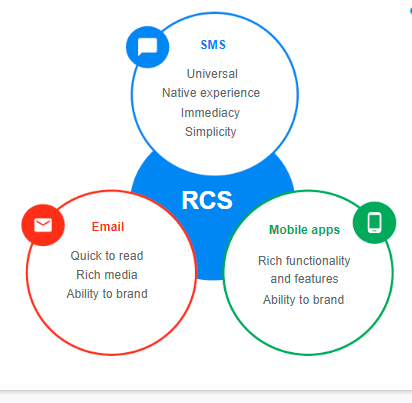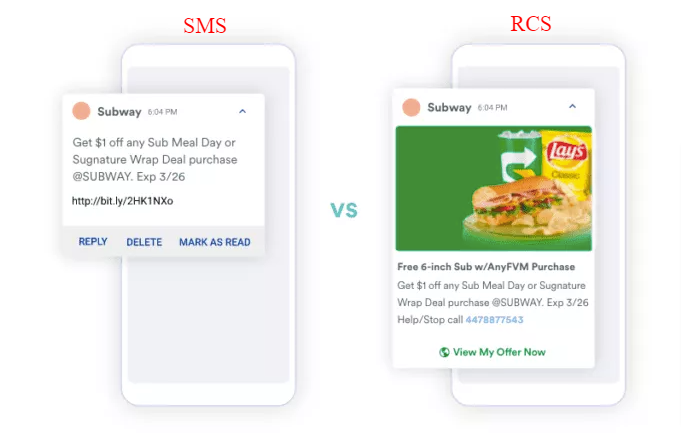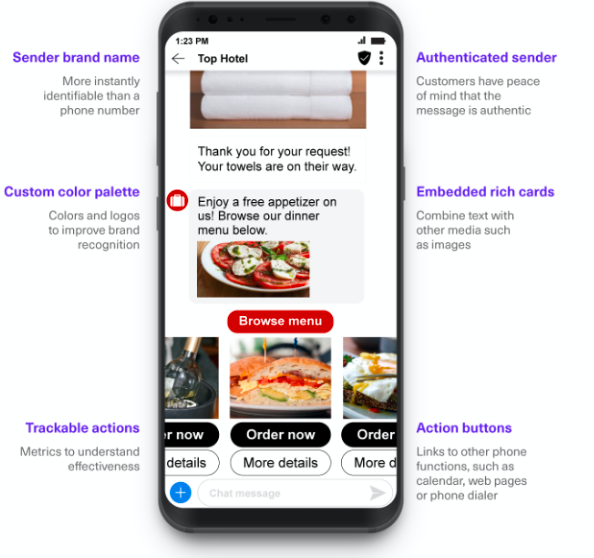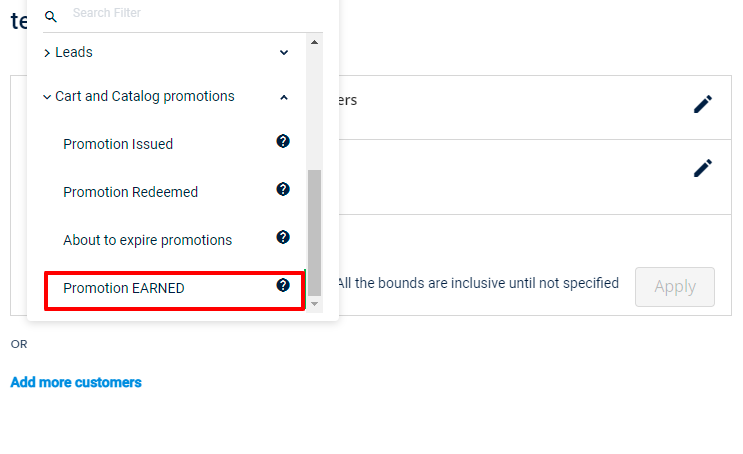Engage+ | AMJ 22
Introducing Rich Communication Services (RCS) channel
Context
Capillary provides various communication channels for marketers to engage with consumers. For example, SMS, email, WhatsApp, push notifications etc. While technology is advancing, parallelly the battle to capture consumers' attention is also increasing. Hence, reaching out to consumers creatively is a top priority. We are enhancing the product suite to enable marketers efficiently reach out to consumers, capture their attention and increase their engagement.
Introduction
RCS (Rich Communications Services) messaging is aimed to replace SMS with a richer text system. This combines the messaging features of popular messaging apps like WhatsApp and Facebook Messenger delivered via the default SMS messaging app.


What makes RCS stand out? - Features
- RCS allows brands to send media messages such as Images, Videos, and carousel media messages, add a CTA button in messages, and better UX.
- RCS enables brands to have their verified profile, business profile picture, and bio which increases the brand’s verifiability.
- RCS offers detailed analytics of campaigns ran, ranging from messages delivered to opened and click rates on links.
- Capillary allows brands to configure Fall back SMS within RCS Campaign so that users who are not reachable on RCS can be automatically reached out through SMS.
What is the fallback SMS mechanism?
When a certain user is not reachable through RCS, then the system will send the configured fallback SMS to the user.
What is the use of fallback SMS?
Brands can easily reach out to all its customer through one campaign and do not need to run separate campaigns for RCS and SMS. A possible small set of users who might not receive will directly get an SMS. So communication to each user is done through a campaign.

Benefits of RCS
- RCS messages are delivered in an SMS messaging box, where consumers are habituated to receiving promotional messages hence decreasing the chances of users blocking the brand.
- Through RCS brands can engage their customers better by sharing high-resolution photos and videos, making it easier to add appointments to a calendar, mapping directions to physical outlets, sharing a carousel of products, and more!
- RCS does not have template whitelisting, therefore a smoother process for brands to run campaigns.
- RCS does not have a mandatory opt-out tag process, hence brands can leverage it to reach out to unreachable customers on another channel.
Benefits with using Capillary for RCS
- Capillary enables brands to attach and issue offers to consumers and engage on the RCS channel.
- Capillary enables brands to segment target users and runs RCS campaigns, which yields better ROI.
- Capillary provides detailed analytics of campaign performance, user-level insights, purchase pattern, and ROI from both the online and offline world which helps brands to take data-backed decisions.
- Capillary provides functionality to configure fallback SMS, therefore, brands can run a single RCS campaign and target all sets of users, users who are not reachable on RCS directly gets an SMS.
How to get access to RCS?
- We are going live with RCS in May, hence we are opening doors for brands to start with their RCS account creation process.
- For any brand to run RCS campaigns, it is mandatory to have an RCS account created, hence it would be in the best interest to start the onboarding process of respective brands.
Find a detailed feature guide for RCS which Capillary is going to support, Rich Communication Service (RCS) here].
Find a detailed feature guide for RCS which Capillary is going to support, here.
New audience filter - Earned Promotions
Context
We offer various types of filters to create audience lists. This helps you target a precise set of audience to get more engagement and ROI on campaigns. Certain categories of filters are Promotion based, Loyalty based, User Profile based, Transaction based etc. We continuously try to add valid filters so that brands can have more edges while creating an target audience base for campaigns.
Problem Statement
To increase customer engagement, brands run various promotions and set up rules for users to earn those promotions. In order to leverage this construct, and increase user loyalty - brands want to engage with specific users who have earned respective promotions. Brands want to run specialized campaigns for earned promotion users, and remind them about the promotions.
Earlier, we were not supporting filters for targeting promotions earned users.
Solution
We have introduced a new filter, “Promotions Earned” in the Audience Manager.
- Promotions Earned - The filter will target the audience who earned promotions during a specific period.

Example: Filter users who have earned promotions more than 3 times in July month.
Consider Zoha has earned 2 promotions on July 7, and 3 promotions on July 10, and Raj has earned 1 promotion on July 10.
Who will make it to the filter list? - Zoha; As we want a user who has earned more than 3 promotions in the selected time range.
